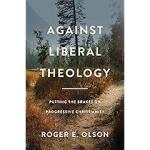First, I know scholars for whom the notion of allegorical interpretation is a slippery slope that allows interpreters to twist the Bible to say anything they wish. This is a reasonable concern, as it does open the door to abuse. However, one has to wonder, what approach to biblical interpretation has been able to avoid abuse? There really is only one question here that matters and it is this: did God intend us to use allegory as a means to interpret the Scriptures? Origen gives us a good argument for why the answer is yes.
Second, within the church of Origen's time and for some time after, we can identify two different interpretive traditions, one known as the Antiochene school and the other as the Alexandrian school for the location of their respective centers of scholarship. A central element of the Alexandrian school of interpretation was the acceptance of allegorical interpretation. The Antiochene school resisted allegorical interpretation. As we noted at the outset, Origen's work was centered in Alexandria. Now, what is particularly interesting is which of the schools seemed most frequently to end up with heretical doctrinal positions. During the modern period (from, say, 1600 to the late 1900s), rationalistic individualism increasingly tended toward more literal meanings of texts, with a resistance to taking liberties with the "plain meaning" conveyed by the texts. So, one might expect that the looser interpretive methods of allegorical readings would be more likely to err and promote heretical positions. However, precisely the opposite was true. It was the more literalistic and typological interpretative approach of the Antiochenes that tended more often to end up in error.
Third, one might reasonably wonder why this would be the case—why did those who took the writings more literally seem more frequently to come to erroneous conclusions? One has to admit that Origen is correct that there are biblical passages that seem, to use his words, "impossible," "irrational," or "unworthy of God." A person who holds to a more literalistic interpretive approach must figure out ways to cover over those "stumbling-blocks." In the process, they must defend the impossible as possible, the irrational as rational and what is unworthy of God as being worthy of God. Yet, we ultimately hold that God is a God of order and not disorder and, consequently, such attempts at reconciliation are unlikely to succeed. Some of the failures resulted in positions that ran counter to the canonized doctrines of the church.
Consider, for example, Athanasius, who in his work ContraArianos argued for the divinity of Jesus and against the position of Arius who held that there was no fully divine nature in Christ. Once while I was teaching a course on Christian doctrine, a student read a list of biblical proof texts defending the Arian view of Jesus. It was a long list, and at one point, another student raised his hand and asked, "Well, given these proof texts, why are we not all Arians?" In other words, this student in particular was feeling the force of the biblical passages cited by the Arians. The answer Athanasius gave was that the Arians tended to read the Scriptures woodenly and literalistically. The result of this literalism, according to Athanasius and the church as a whole, was the embrace of heresy. With Origen, Athanasius readily accepted that the Scriptures do not always mean what, on first glance, they seem to mean.
Finally, consider a well-known verse of the Scriptures from I Timothy 3:16:
All scripture is inspired by God and is useful for teaching, for reproof, for correction, and for training in righteousness. (NRSV)
The Greek word that is translated as "inspired by God" here is theopneustos, which literally means God-breathed. This word appears nowhere else in the Scriptures. So, we do not have other usages to fall back on to help us understand more about what it means. However, for our purposes, we need not dig too much deeper on the meaning of the term. Rather, consider one of our initial points—that the church saw writings beyond those in the official canon as important for the life of faith. In chapter five we explore some writings of Basil the Great. His brother, Gregory of Nyssa, made an interesting statement about Basil's commentary on Genesis. He called it theopneustos—that is, Gregory considered Basil's commentary to be God-breathed. There were other cases where early church fathers used the term in application to works other than the 66 books that we consider the canonical Scriptures.
Now, I want to be clear. The point here is not to reduce the significance of the word, theopneustos, nor is the point to undermine the importance of the word as applied to biblical writings. Rather, I intend to resist the contemporary tendency to underemphasize the importance to Christian life and practice of other texts within the broad canonical heritage of the church. I wish to elevate their importance and, thereby, once again to draw attention to the contribution important, non-biblical writings have made to the life of faith and the life of the church. As Ted Peters once wrote, while the early church clearly took the Scriptures to be inspired by God, it did not claim that the Scriptures were the only writing that was inspired by God. Certainly, this was explicitly the case with Gregory and his view of Basil's commentary on Genesis.




